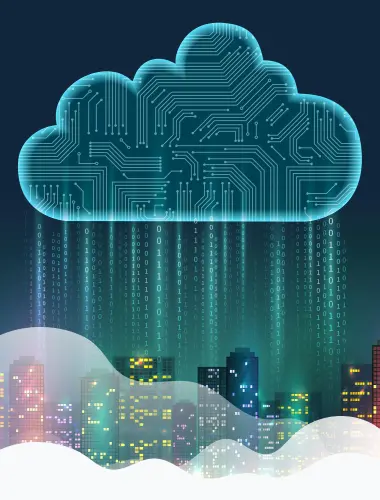Blogs
OTT & VoD Data Traffic in India Grew 1,317% During COVID, Gaming Rose 1,007%: Ivo Ivanov
What has been DE-CIX’s experience handling data traffic in India?
There were huge changes in data traffic. In India, the four DE-CIX locations noted a strong rise in traffic from internet usage – up to 192% since the pandemic hit the country. The demand is enormous, and DE-CIX has further increased its geographical presence lately in order to offer new connectivity options closer to the users in different geographies around the globe, as well as doubling our backbone capacity in India for seamless and secure interconnection.
Could you share some statistics on data consumption?
There was a significant growth in traffic. For instance, between February to December 2020, OTT & Video on Demand grew a whopping 1,317%, while gaming grew at 1,007%. Similarly, ISP traffic grew at 397%, whereas traffic from content delivery networks rose 328%. Data traffic at social & online media grew by 210% during the same period.
What were the data consumption trends for rural India?
Rural data consumption has increased in comparison to urban India, but this figure is only for mobile data usage.
With respect to India’s data consumption story, have you witnessed any trends and how do you plan to evolve with it?
What is clear from last twelve months is that all areas of business and private life rely more heavily today than ever before on digital applications. But beyond the virtual desktop and video streaming, where we certainly saw enormous jumps in usage during 2020, we have also seen specific sectors taking leaps ahead with digital applications and services, ranging from e-health to logistics and mobility applications, and on to the finance sector – but also education, administrative services, and even agriculture. This transformation has not been caused by Covid, but accelerated by it.
So last year, we developed and announced DE-CIX Enterprise Interconnection Federation services that allows enterprises to create their own interconnection ecosystem (closed user groups or virtual private ecosystems) based on their security, performance and compliance requirements. For instance, a bank can create its own closed user group in the DE-CIX ecosystem and invite all its stakeholders like data analytic companies, transaction providers, cloud connectivity providers and corporate and residential internet access providers to interconnect with the bank’s network directly. This increases the performance, efficiency, and security of the data exchange.
DE-CIX recently increased points of presence (PoPs) in India. What is the rationale behind it?
We embarked on this expansion for connected network operators. We are able to bring a lot of internet content closer to the users across India. By announcing these four very important locations, we will have our key markets fortified for interconnectivity solutions. In last 12 months at DE-CIX India, we have unambiguously demonstrated to the industry how we have significantly impacted and redefined the market, such that we have become the market leader with a customer base of 310+.
The lowest latency of internet traffic is more crucial than ever. DE-CIX India will continue to enable more platforms across the country, as close as possible to the users. This is key to cover the future demand for the best possible performance on all digital applications, including live sports streaming, gaming, virtual desktops and cloud connectivity in general, real time adoptive robotics in the manufacturing section, etc.
DE-CIX is also in discussion with LEO satellite operators to support their expansion plans to deliver great internet experience in remote areas. LEO satellites have a strong business case. They cost lower compared to common satellite technology. Second, maintenance is easier. Third that they are low cruising allows a much better performance on the latency side. They perform lower than 25 milliseconds, which is today absolutely okay for online gaming, and bandwidth is much higher, in range of tens of gigabits, and is sufficient enough to serve house calls and offices. So my expectation is that on account of much less capex and open on the operator side, the products will be affordable.
What is your view on India’s digital journey going ahead?
In 2021 everything related to digitisation of entertainment, gaming, live sports, education, healthcare, digitised cars etc will gain prominence. In the B2B world, digitisation of processes, usage of cloud services and use of a distributed data exchange, which is not on premise with the enterprises and needs to be placed in hyper scale data centres and needs to be distributed across the country.
Subscribe to Newsletter

